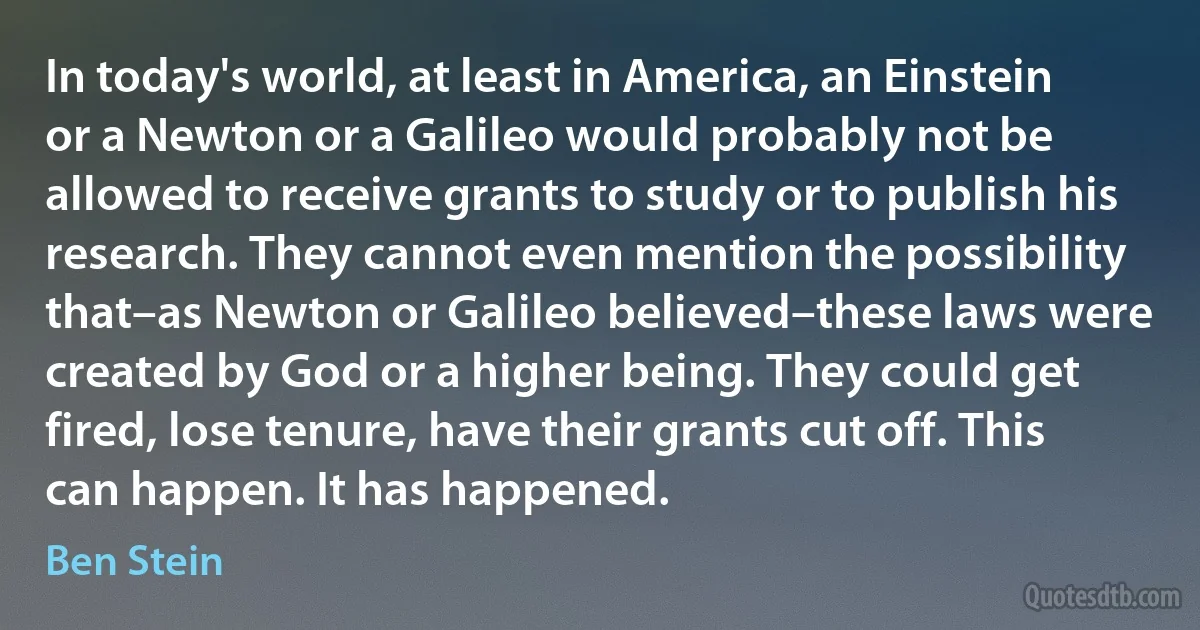Mention Quotes - page 10
He is a gentleman of strict conscience, disdainful of all littleness and meanness and ready on the shortest notice to die any death you may please to mention rather than give occasion for the least impeachment of his integrity. He is an honourable, obstinate, truthful, high-spirited, intensely prejudiced, perfectly unreasonable man.

Charles Dickens
[It] would have been all the easier [if] the entire story of the scar had been presented as a recollection which awakens in Odysseus' mind at this particular moment. It would have been perfectly easy to do; the story of the scar had only to be inserted two verses earlier, at the first mention of the word scar, where the motifs "Odysseus” and "recollection” were already at hand. But any such subjectivistic‐perspectivistic procedure, creating a foreground and background, resulting in the present lying open to the depths of the past, is entirely foreign to the Homeric style; the Homeric style knows only a foreground, only a uniformly illuminated, uniformly objective present.

Erich Auerbach
You mention the circle and I agree with your definition.... why does the circle fascinates me? It is (1) the most modern form, but asserts itself unconditionally, (2) a precise but inexhaustible variable, (3) simultaneously stable and unstable, (4) simultaneously loud and soft, (5) a single tension that caries countless tensions within it. The circle is the synthesis of the greatest oppositions. It combines the concentric and the eccentric in a single form, and in balance. Of the three primary forms (triangle, square, circle), it points most clearly to the fourth dimension.

Wassily Kandinsky
My Kelvin decides to stay on the planet without any hope whatsoever while Tarkovsky created an image where some kind of an island appears, and on that island a hut. And when I hear about the hut and the island I'm beside myself with irritation... This is just some emotional sauce into which Tarkovsky has submerged his heroes, not to mention that he has completely amputated the scientific landscape and in its place introduced so much of the weirdness I cannot stand. [...].

Stanisław Lem
We have fish and chips, which W. and I fetch from the shop in Settle market-place. Some local boys come in and there is a bit of chat between them and the fish-fryer about whether the kestrel under the counter is for sale....Only when I mention it to W. does he explain Kestrel is now a lager. I imagine the future is going to contain an increasing number of incidents like this, culminating with a man in a white coat saying to one kindly, "And now can you tell me the name of the Prime Minister?"

Alan Bennett
I have invented [c. 1915-1916] a new series of verses, verses without words, or sound poems, in which the balancing of the vowels is gauged and distributed according to the value of the initial line... With these sound poems we should renounce language, devastated and made impossible by journalism. We should withdraw into the innermost alchemy of the word, and even surrender the word, thus conserving for poetry its most sacred domain. We should refuse to make poems second-hand; we should stop taking over words (not to mention sentences) which we did not invent entirely anew for our own use. We should no longer be content to achieve poetic effects which, in the final analysis, are but echoes of inspiration..

Hugo Ball
It is not likely that the history of psychology can be written in the next three centuries without mention of Freud's name and still claim to be a general history of psychology... Perhaps, had Freud been smothered in his cradle, the times would have produced a substitute, It is hard to say. The dynamics of history lack control experiments.

Edwin Boring
There is no single speech nor article in which it is not said that the purpose of all these orgies is the peace of Europe. At a dinner given by the representatives of French literature, all breathe of peace. M. Zola, who, a short time previously, had written that war was inevitable, and even serviceable; M. de Vogue, who more than once has stated the same in print, say, neither of them, a word as to war, but speak only of peace. The sessions of Parliament open with speeches upon the past festivities; the speakers mention that such festivities are an assurance of peace to Europe.
It is as if a man should come into a peaceful company, and commence energetically to assure everyone present that he has not the least intention to knock out anyone's teeth, blacken their eyes, or break their arms, but has only the most peaceful ideas for passing the evening.

Leo Tolstoy
I stick to what I know. If I've objected strongly to Christianity, it has been because Christianity is deeply branded by a very virulent humiliation motif. One of its main tenets is 'I, a miserable sinner, born in sin, who have sinned all my days, etc.' Our way of living and behaving under this punishment is completely atavistic. I could go on talking about this humiliation business for ever. It's one of the big basic experiences. I react very strongly to every form of humiliation; and a person in my situation, in my position, has been exposed to whole series of real humiliations. Not to mention having humiliated others!

Ingmar Bergman
Moreover, in Christ's second discourse, the mode in which the mention of Jonas is understood in Matthew, verse 40, is wholly unsuited to the context and to the application which even there is made of it; and if we do not take this for a later interpolation, for which no adequate inducement suggests itself, it must be considered as an erroneous comment of the reporter, which he has mixed up with Christ's own words, of course without being conscious of it, a thing which might easily happen when his recollection had become dim and confused. In addition to the signs already adduced of Matthew's reporter having been so circumstanced comes the fact, that he omits the little incident related in Luke, which intervenes between Christ's two discourses, namely, the admiring ejaculation of a woman in the crowd and the reply to it.

Friedrich Schleiermacher
All across America, thousands of est graduates, Forum participants, Erhard employees, and other faithful acolytes - not to mention countless others who may have remembered only vaguely the man with the strange-sounding name of Werner Erhard - watched as 60 Minutes correspondent Ed Bradley related a dark story of Erhard's past.

Ed Bradley
...We beg leave to transport the reader to the back-parlour of the post-master's house at Fairport, where his wife, he himself being absent, was employed in assorting for delivery the letters which had come by the Edinburgh post. This is very often in country towns the period of the day when gossips find it particularly agreeable to call on the man or woman of letters, in order, from the outside of the epistles, and, if they are not belied, occasionally from the inside also, to amuse themselves with gleaning information, or forming conjectures about the correspondence and affairs of their neighbours. Two females of this description were, at the time we mention, assisting, or impeding, Mrs. Mailsetter in her official duty.

Walter Scott
They were allowed a little touch at each of the books, but only with their fingertips tonight, literature cannot bear dirty hands; first we'll have to back each volume with paper, the covers must not get dirty, nor the spines slit, books are the nation's most precious possession, books have preserved the nation's life through monopoly, pestilence, and volcanic eruption, not to mention the tons of snow that have lain over the country's widely scattered homesteads for the major part of every one of its thousand years.

Halldór Laxness
I appeal to the philosophers of all countries to unite and never again mention Heidegger or talk to another philosopher who defends Heidegger. This man was a devil. I mean, he behaved like a devil to his beloved teacher, and he has a devilish influence on Germany. ... One has to read Heidegger in the original to see what a swindler he was.

Karl Popper
I could best believe that love was some sort of rubbish thought up by the romantic geniuses who were now going to start bellowing like cows, or even dying; at least, there is no mention of love in Njal's Saga, which is nevertheless better than any romantic literature. I had lived for twenty years with the best people in the country, my father and mother, and never heard love mentioned. This couple begat us children, certainly; but not from love; rather, as an element of the simple life of poor people who have no pastimes. On the other hand I had never heard a cross word pass between them all my life-but is that love? I hardly think so. I think love is a pastime amongst sterile folk in towns, and takes the place of the simple life.

Halldór Laxness
I had been gone a fortnight when the telegram was put into my hands. I had got a letter from my sister, a few hours before, saying that all was well at home. The telegram said in five words that she had died suddenly the previous night. There was no mention of my mother, and I was three days' journey from home.
The news I got on reaching London was this: my mother did not understand that her daughter was dead, and they were waiting for me to tell her.

J. M. Barrie



